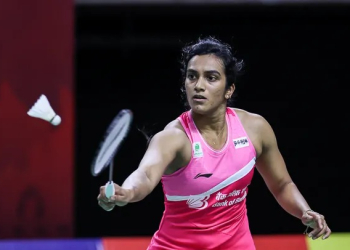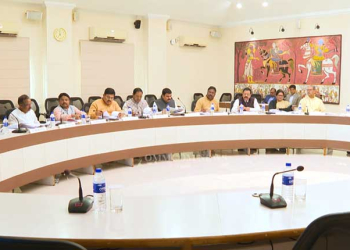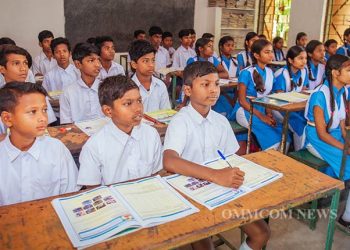New Delhi: Indian shooters dismal showing at the 2020 Tokyo Olympic Games will keep reminding us constantly of the great opportunity of winning a handful of medals that went abegging.
A record 15 shooters qualified for the quadrennial showpiece last year but none of them could bring home a medal, extending the drought to nearly nine years – India didn’t win a medal in shooting at 2016 Rio as well.
Come to think of it, the sport earned India its maiden individual silver when double-trap shooter RVS Rathore stood on the podium in 2004 Athens, and four years later rifle shooter Abhinav Bindra did another historic first by clinching the country’s first individual gold in 2008 Beijing. Four years later, pistol shooter Vijay Kumar and rifle marksman Gagan Narang earned silver and a bronze respectively at London.
Things were looking brighter than ever for the sport, but unfortunately things have gone downhill since, with not a single medal at Rio and Tokyo.
However, India’s shotgun stalwart and four-time Olympian Mansher Singh believes things can be turned around quickly for 2024 Paris if one builds on small positives with the aim to achieve bigger goals.
The Commonwealth Games gold medallist in trap shooting believes that with the Indian shooters not getting the opportunity to compete at the 2022 Commonwealth Games, as the sport was not in the Birmingham curriculum, they should make the now-postponed Asian Games in Hangzhou next year as the stepping stone for their main objective of winning medals at the Paris Olympics.
“Most of the (shooting) events that are there in the 2024 Paris Olympics are there in the Asian Games as well. In fact, there are more shooting events at the Asian Games in Hangzhou than at the Olympics. So, our objective should be to create an atmosphere of more victories, more winnings and more medals coming into the Asian Games,” says Mansher, the former senior chief national coach of the shotgun team.
“That is going to create a further positive impact in the athletes’ training to get ready for the Olympics, because winning in the Asian Games, when you go to Paris you are going to feel a little more positive about the outcome there. We have to take Paris as the final goal. We have to build our team up till Paris,” added Mansher, the four-time Asian Games medallist.
Mansher also believes that with the government pumping in so much money into sports through various schemes, the system will have to become more performance oriented.
“Whatever event happens now we have to cash in on that, be it athletics, shooting, hockey. Athletes need to do well so that our whole system becomes performance oriented and results will show in Paris. So, training must now be done specifically for goals, short-term goals, with the long-term goal being Paris,” added Mansher.
The veteran shooter also opined that training in isolation by being away from competition is not the right way to approach an event like the Olympics, saying that building on small gains by competing in tournaments worldwide can only result in bigger achievements.
“You cannot isolate yourself from everything and then go to Paris. No, that’s not the right approach. Short-term goals to build performance, timings etc are the key, so that by the time we get to Paris, the athlete is much better than he was at the Commonwealth Games.”
For a sport like shooting, Mansher said that a lot will depend upon how and when Indian marksmen win quota places for the country in the run-up to the Paris Olympics.
“In shooting, it all will hinge on the quota places (earned). The quota distribution will now start next month with the World Championships and there will also be Asian competitions. The whole quota system has changed after the 2020 Tokyo Games, with the World Cups now not having quota places.
“Some continental events have quotas, World Championships too have a lot of quota places and then there’s going to be the ISSF Final Grand Prix at the end of May 2024 I suppose, which will give more quotas. So they’ve (International Shooting Sport Federation, ISSF) changed the whole concept of quotas. We’ll have to wait and see how our athletes go about it. Obviously, winning quota places in the World Championships next month will be brilliant because that will put us in a good place. But after winning those quotas, how we plan the training will be crucial,” he opined.
(IANS)



















